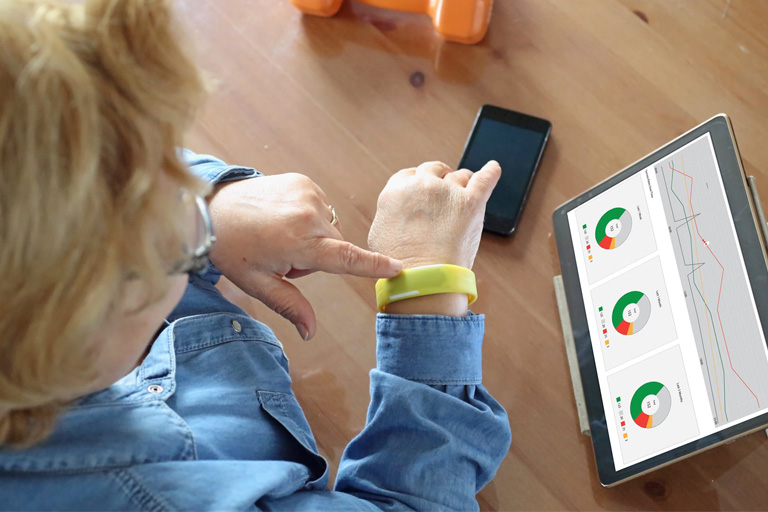As much as possible, senior citizens want to maintain their independence. Many want to stay at a familiar home rather than move into a senior living facility. For family members living at a distance, this can raise concerns about their loved one’s health and well-being. New technologies not only make it easier to communicate, but they also make it possible to maintain and improve the health of seniors.
Technology for Monitoring Health
One of the challenges in maintaining senior health is regular monitoring. In order to maintain their independence, senior citizens may not always report it if they are having a problem. When there are early stages of dementia, they may not realize that they are having issues. Sensor-driven technology can help alleviate some of these concerns. Recently, the FDA approved pills with an ingestion tracking system. The pill itself has a small sensor that signals to a mobile application that it has been swallowed. While these are in limited use now, they will become more common as doctors seek ways to keep their patients on track.
Common cell phone apps can be a big help in monitoring senior activity. Staying active has many health benefits. Step trackers and heartrate monitors can help patients pay attention to their own health needs as well as signal changes to medical professionals. If a patient’s activity rate decreases, it may be a sign of an oncoming illness or another change in health.
Technology for Home Safety
One of the greatest worries for family members is a loved one having an accident at home with no one there to help. Everyone is familiar with the nightmare scenario of an older person who falls downstairs and is trapped in place for hours or days. A medical alert necklace can be a lifesaving piece of equipment in these cases. The technology around these devices has greatly improved in recent years. It used to be that this device was simply a tool for summoning help. The senior needed to be at home near a receiver for the device to be useful. Now, these necklaces come equipped with sensors that automatically indicate a fall to emergency personnel. Some models also have GPS tracking systems that can locate a senior citizen anywhere around town.
Companies can adapt home security systems to help keep independent seniors safe. Normally, people think of motion detectors as devices to keep unwanted criminals out of the home. However, these same devices can track a senior citizen’s movements through the home. If the senior is connected to a monitoring service, the service can try to determine if there is a problem if the individual has not moved for an unusual amount of time.
Technology for Mental Stimulation
Mental stimulation and social connection are critical to the health of older people. A lack of stimulation can contribute to the onset of dementia as well as other mental health issues such as depression. Fortunately, there are many ways that technology can help older people who are living alone stay connected.
While parents complain about their children playing games on mobile devices, these same games can help senior citizens stay engaged and focused. Video games challenge players to concentrate and react to a variety of stimuli. More recently, app developers have introduced games that specifically focus on brain training and improvement. The game Sea Hero Quest by the video game company Glitchers was developed to research the link between dementia and the ability to navigate through space.
Social media is quickly becoming a popular resource for senior citizens. Facebook has seen an increase in users over 65 as they seek to stay connected to old friends and family members. By using social media platforms, seniors can remind one another of events from the past as well as share feelings with a peer group.
Another important innovation for seniors is the ability to talk face-to-face with people over the web. The primary benefit for seniors is having social interaction that includes the nuances of facial expression. For family members and health providers, these face-to-face meetings are opportunities to check in on the well-being of the individual. Video chats can help people see changes in mood as well as changes in self-care and hygiene.
An Evolving Field
Home health technology is a growing field. Internet-connected sensors in refrigerators may soon deliver information about senior diets. Advances in robotic technology will make electronic companions more realistic and helpful. As the baby boomer generation hopes to age in place, technology will develop to keep them safe at home.























